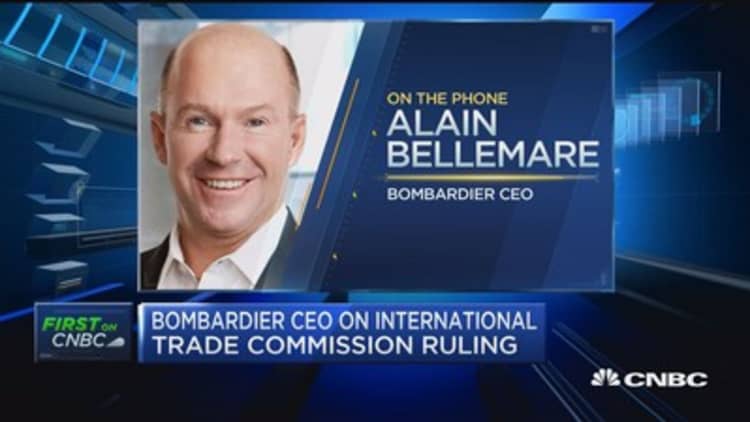Delta Air Lines has declared victory in two heated trade disputes in less than a week, one thanks to the Trump administration and a second that effectively blocked another of the administration's decisions.
On Tuesday, Delta cheered an understanding reached between the U.S. and Qatari governments that would open the books of state-controlled Qatar Airways, one of the three Middle East carriers that Delta, along with American and United, have repeatedly complained receive unfair government subsidies.
Qatar Airways declined to comment.
Delta and its U.S. rivals thanked the Trump administration, saying the agreement creates a more level playing field for U.S. carriers.
The State Department said the agreement was reached on Monday, handing Delta its second trade victory since Friday.
Delta is expecting the fight over Persian Gulf carriers to continue and appealed to the Trump administration to help it address practices of other airlines in that region.
"Today's agreement by the State of Qatar is a strong first step in a process for commercial transparency and accountability, and we remain committed to working with the administration to address the harmful trade violations by the United Arab Emirates as well," Delta CEO Ed Bastian said in a statement.
After the State Department's announcement, Bastian told CNBC that the airline is open to resuming flights to the Persian Gulf region but declined to provide more details.
Delta's other trade victory came on Friday, when, in a surprise decision, the U.S. International Trade Commission ruled against Boeing in a bitter trade battle in which the Chicago-based company said its business was harmed by trade practices of its Canadian rival Bombardier.
Delta was swept up in the dispute because it agreed to purchase at least 75 of the C Series jets from Bombardier in 2016. Boeing complained the planes were sold to the Atlanta-based airline below their production cost.
In late 2017, the Commerce Department slapped duties of nearly 300 percent on the jets, forcing Delta to come up with alternative fleet plans as the trade dispute intensified. Those tariffs would have made the planes unaffordable. Friday's vote means the tariffs cannot be implemented.
That dispute may not be over. Boeing could appeal to the International Court of Trade in New York. The U.S. government could take the case to the World Trade Organization.
Delta's Bastian had repeatedly insisted the airline wouldn't pay the duties on the planes. It may be a moot point in the end because European aerospace giant Airbus, Boeing's chief rival, last year agreed to take a majority stake in the jet program and the two plan to build the aircraft in Alabama, where Airbus makes narrowbody passenger planes.
Bombardier's CEO told CNBC after the ruling that that plan is still on track.



